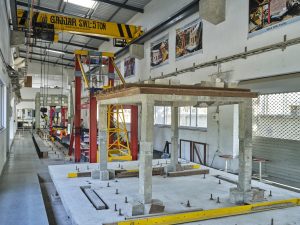
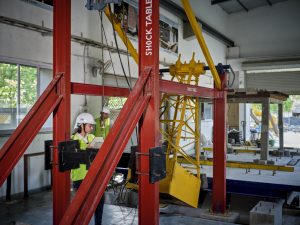
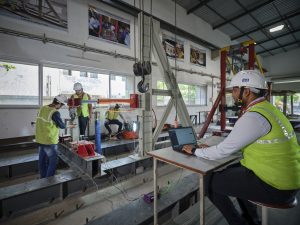
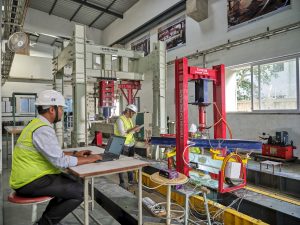
For detailed information, refer HSL brochure: SERC Brochure
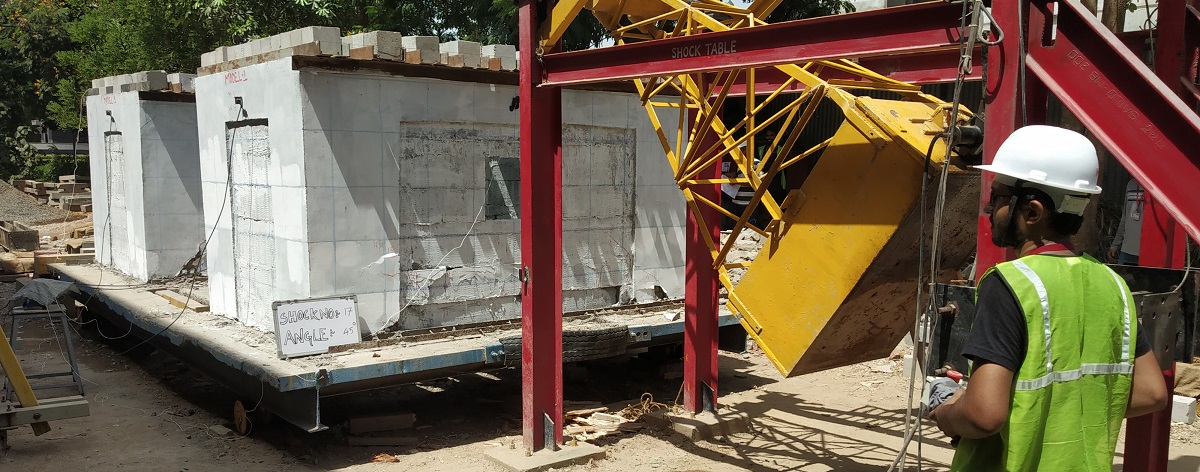
The Earthquake Engineering Laboratory facilitates to understand the complex behaviour of the structures during the event of an earthquake.
The Laboratory houses a 6.3 m x 3 m composite table and 1.5 tonne pendulum as an integral part of unique shock table facility. This Facility is essentially used to study the behaviour of half-scale and full-scale building models under dynamics loading, specially simulating earthquake.
Other major equipment in the laboratory includes: Shake table with harmonic motion, Uni-axial and Tri-axial accelerometers and Data acquisition system.
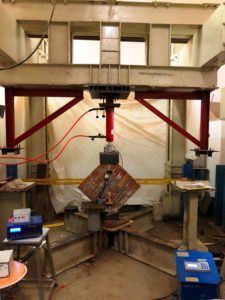
Structural Engineering Research Centre (SERC) is a major facility to conduct experimental studies on structural elements/ structures at Civil Engineering Department. These studies play a great role in keeping structure safe under gravity and lateral loading conditions.
It measures about 800 sq. meter. The laboratory comprises of a 6 m x 28 m strong floor with loading frames. 2- and 3- dimensional structural models are tested under gravity and lateral loading using this facility. Laboratory is equipped with a 5 tonne electrically operated overhead crane for handling the tests specimens.
Other major equipment in the laboratory include Loading frames for applying vertical and lateral load, Universal testing machine, Compression testing machines, flexure testing machines and torsional testing machine, Hydraulic Jacks, Load cells, LVDTs, XY plotter, strain measurement system and Data acquisition system.
For detailed information, refer SERC brochure: SERC Brochure
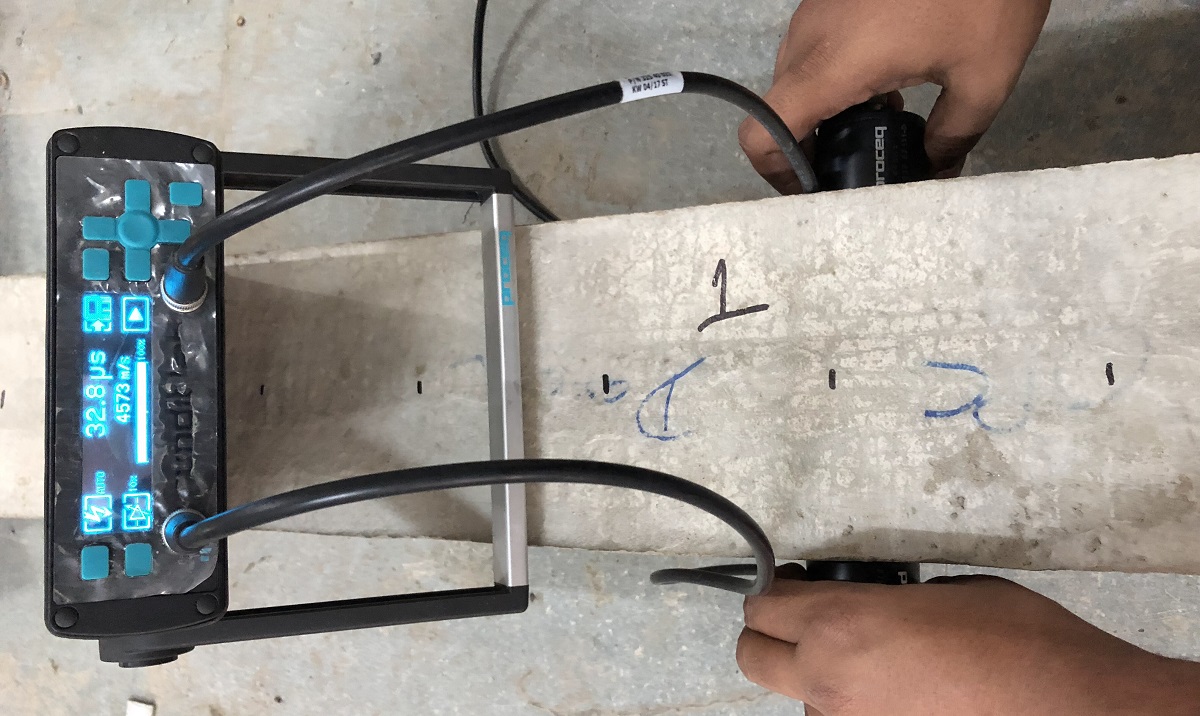
The Concrete Durability and NDT Laboratory includes facilities to undertake in-situ testing of concrete to understand the behaviour and properties in order to evaluate its compressive strength and durability aspects.
Concrete durability testing includes facilities for conducting tests on concrete i.e. Rapid Chloride Permeability, Accelerated carbonation, Accelerated corrosion, Sorptivity, Fire testing, Permeability, Impermeability, Rapid chloride migration etc.
Non-destructive testing on concrete includes facilities i.e. Rebound hammer, Ultrapulse velocity meter, Core cutter, Half-cell potentiometer, Resistivity meter, Covermeter, Pull-off tester, etc.